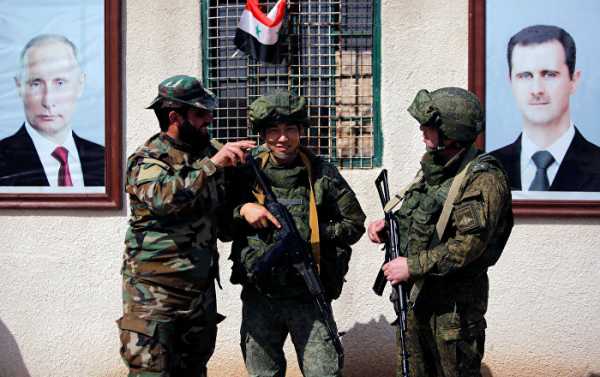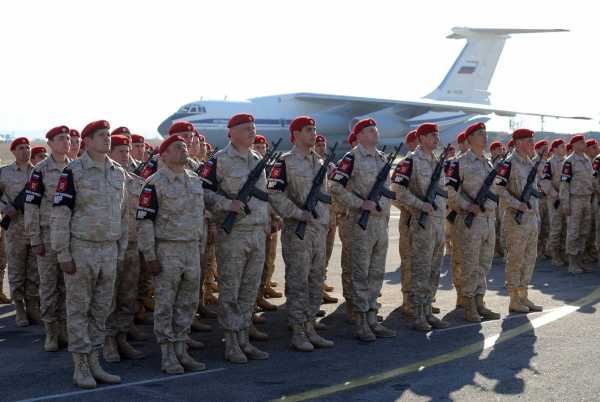
Russia’s military operation in Syria was aimed at curtailing the threat of terrorism and benefited the international community, Dr. Akbari Jeddi, special representative of the supreme leader of the Islamic Republic of Iran, told Sputnik, while commenting on the joint March 15 Russo-Iranian conference on countering extremism.
On March 15, Moscow hosted a research and practical conference entitled “Counteraction to radical and extremist trends.” The event was organized in cooperation with the Moscow Islamic Institute and the cultural representation of the Embassy of the Islamic Republic of Iran in the Russian Federation. Dr. Akbari Jeddi, the special representative of the supreme leader of the Islamic Republic of Iran in Russia, shared his views on Russo-Iranian cooperation in the field of fighting Islamism.
Sputnik: Dear Dr. Akbari Jeddi, how do you assess the role of the Russian Federation in the fight against extremism?
The phenomenon of extremism poses a threat to many countries. One of the countries that became the main target of extremists is the Russian Federation. We can judge this from past events and attacks. But what is the most important is that Daesh (ISIS/ISIL)* leaders and commanders speak Russian fluently. This indicates that [terrorists’] recruitment also takes place in Russia. Accordingly, under these conditions, when there is a threat to the security of the country, Russia could not sit idly by. Therefore, the decision of the Russian authorities to fight this evil outside the borders of their country is justified and correct.
After all, if you do not bring an end to terrorism there [in Syria] its elements will penetrate into the country [Russia]. Therefore, Russia’s actions in Syria were a necessary security measure to prevent extremism from penetrating into the country. No matter from what perspective one looks at this operation, it was a balanced and thought-out military measure to ensure security which served not only Russia’s interest, but benefited the whole world. Russia has managed to weaken the terrorists, which in many ways curtailed the growth of extremism. Therefore, we assess the efforts of the Russian Federation and its role in the fight against extremism and terrorism positively.

Russian army servicemen at the Khmeimim Air Base in Syria
Sputnik: It is known that on the Syrian anti-terrorism front, Russia and Iran acted as allies. What other forms of cooperation, in addition to military-technical cooperation, should our countries develop to counter radicalism and extremism, in your opinion?
Our countries’ collaboration in the field of countering extremism and terrorism has long-term prospects. It should not be limited to military-technical cooperation. Our collaboration should develop in other areas as well. Naturally, it should be conducted within the framework of security services that have to assist each other as they are fulfilling the mission of preventing terrorists from sneaking into the countries. However, it is also important to develop and expand our cultural, educational, ideological and moral partnership.
One good example is our joint conference with our Russian counterparts. We have managed to discuss important issues on promoting the ideas of moderate Islam among theologians and scholars. Together with our Russian counterparts, we believe that we need to consolidate and form a [common] front to resist terrorism. From the ideological point of view, we have started cooperation at the academic level. In addition, Russian religious leaders could outline the most important issues which concern the youth to understand Islam properly and find out distinctive features of extremist ideas. There are lots of academic and practical research works in Iran [on the issue] and we are ready to share them with our Russian colleagues. It is through these enlightenment and translation activities that one can fight against radical and extremist ideologies.
Sputnik: Iranian operational services, such as the Islamic Revolutionary Guard Corps (IRGC), which directly engage in the fight against terrorists, are well-informed about the religious ideology of extremists, in addition to tactical and combat skills. Could they share their experience with Russian operational services?
Undoubtedly, such cooperation is possible and necessary. Those engaged in a direct combat against extremists on the battlefield should be well versed in religious disciplines and know the principles of extremist ideologies. I believe that the Iranian operatives [the IRGC] have more experience, given the fact that our state system is founded on religious principles. As far as I know, there have been only consultations with our Russian colleagues so far. However, this partnership should be much broader. Our operatives possess excellent knowledge, as well as methods and tactics to quickly identify extremists. And they are ready to share their experience of capturing terrorists with the Russian security service. This cooperation will undoubtedly be promising, productive and very effective.
Sourse: sputniknews.com






